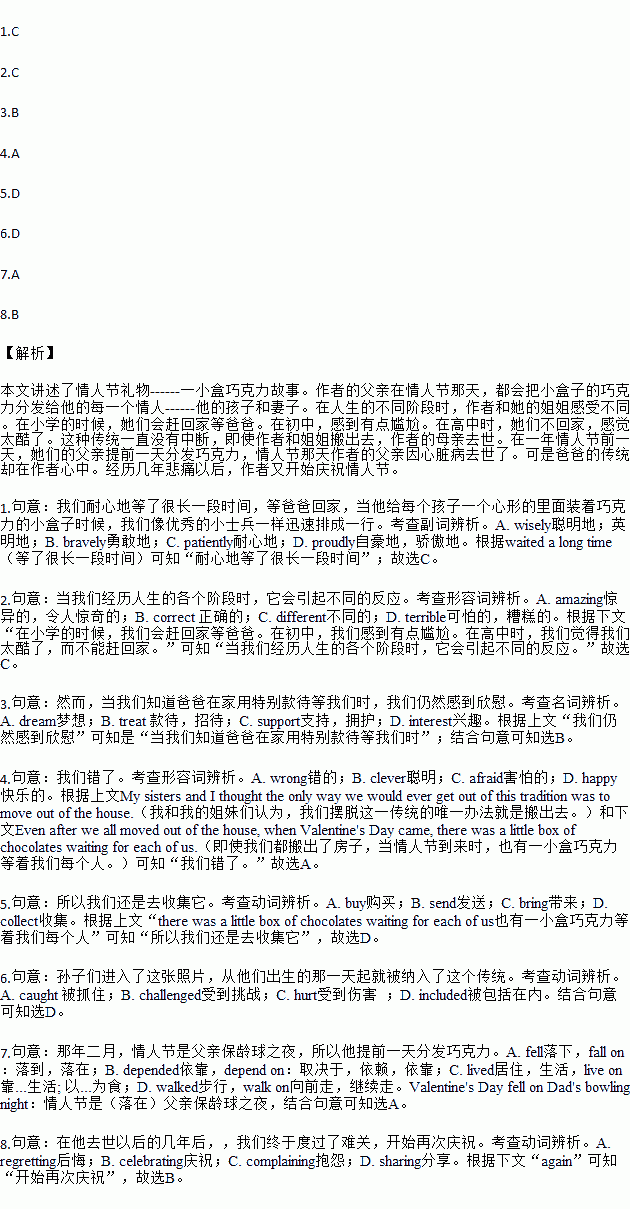题目内容
Little Boxes of Chocolates
Even though thirteen years had passed, it seemed like only yesterday when Dad was handing out those little boxes of chocolates to each of his sweethearts.
Valentine's Day was my father's holiday My sisters and I learned early to be good on that day. We ____waited a long time for Dad to get home and then quickly lined up like good little soldiers as he gave each child a small, heart-shaped box, holding some chocolates.
It caused ____reactions (反应)as we went through the periods in life. In the elementary school years, we would rush home and wait for Dad. In junior high, we felt a little embarrassed(尴尬的). In high school, we thought we were too cool to be rushing home. However, we were still comforted knowing that Dad was home waiting for us with his special _____.
My sisters and I thought the only way we would ever get out of this tradition was to move out of the house. We were_____. Even after we all moved out of the house, when Valentine's Day came, there was a little box of chocolates waiting for each of us. So we still made the trip over to ____ it.
When Mum passed away, we thought this whole tradition would disappear gradually. Wrong again. Grandchildren entered the picture and were also ______ in this tradition from the day they were born.
One year, everything changed. In that February, Valentine's Day____on Dad's bowling night, so he handed out the chocolates a day early.
Then, Valentine's Day arrived. I was watching TV when the phone rang. It was the hospital. Dad had a heart attack, and he didn't make it.
A few years later after his death, we finally went through the hard time and began______again. And come February, when those little heart-shaped boxes of chocolates appear in store windows. Dad's tradition lives on my heart.
1.A.wisely B.bravely C.patiently D.proudly
2.A.amazing B.correct C.different D.terrible
3.A.dream B.treat C.support D.interest
4.A.wrong B.clever C.afraid D.happy
5.A.buy B.send C.bring D.collect
6.A.caught B.challenged C.hurt D.included
7.A.fell B.depended C.lived D.walked
8.A.regretting B.celebrating C.complaining D.sharing
 考前必练系列答案
考前必练系列答案
